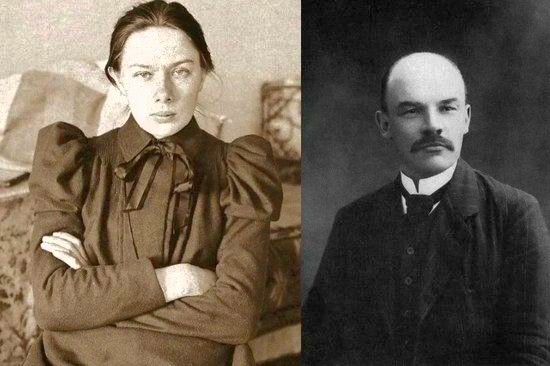

The liberation and leadership of women was a cornerstone of Vladimir Lenin’s thinking and actions as the leader of the Bolshevik Revolution. Revolution could not have been complete without it. It was an integral part of it, and he talked and wrote about it a great deal.
Lenin wanted to know what women wanted and needed and what issues were on their minds. He consulted with them often and regularly. He would meet with women leaders at their offices and homes or he would ask them to meet with him at his office. Lenin consulted with the leading women revolutionaries of the day — Inessa Armand, Alexandra Kollontai, Nadezhda Krupskaya, Rosa Luxemburg and Clara Zetkin.
This article focuses on the preface to the book “The Emancipation of Women,” which was written in 1933 by Krupskaya, Lenin’s spouse and partner, 10 years after his death.


Russian women were some of the most oppressed people in the country due to their living in a patriarchal society. Lenin stated, “only the victory of the working class would bring emancipation to women workers and peasants.” He closely studied the working conditions and lives of women factory workers, peasants and women who produced handicrafts (objects made completely by hand or by using only simple tools). At that time, peasants were moving from farms to factories.
Krupskaya said that Lenin explains in his book “The Development of Capitalism in Russia” that women’s work “at factories broadens their outlook, makes them more cultured and independent, helps them break the shackles of patriarchal life.” He explained that large-scale industry would create the basis for the emancipation of women.
Soviet Union enshrined women’s rights
Lenin called for the complete equality of men and women to be written into the Bolshevik Party’s program, and it was. The Soviet government codified laws that established the full equality of rights for women and men.
The Russian bourgeoisie was telling women to use birth control because their children were doomed to poverty and a life lacking in food, heat and other basic human needs. But Lenin said: No! Children are our future, and we are fighting against poverty when we fight against capitalism and we will win.
Lenin wanted all women to be able to work for the benefit of society. He worked hard to draw the most oppressed women into the work of running the country, including sex workers. He knew they needed to be taught how to govern — how to administer the state; this was called social work. Lenin stressed that all workers needed training in this, and he aimed to break from the view that only the rich could do this.
Many women died in action defending the newly formed Bolshevik government during the Civil War which took place from November 1917 until June 1923.
The Bolshevik government began to raise the question of collectivization of agriculture and communes and the struggle against the kulaks — wealthy peasants who exploited other peasants and loaned money.
Collectivization of agriculture meant consolidating individual farms into collective farms, combining small farms into one large one — which came under state ownership and control. Farmers worked together and made decisions together about these farms.
Krupskaya wrote: “Small scale farming … shackled women, tied them to the individual households, and narrowed their outlook; they were in fact slaves of their husbands, who often beat them cruelly.”
Lenin often quoted peasants who used to say: “Each man for himself and God for all.” He apparently often referred to this expression to show the psychology of a small farmer.
Collectivization, said Krupskaya, “undermines the peasants’ isolation, and the hold of religion and emancipates women.” And she said that Lenin emphasized that “Socialism alone would bring emancipation for women.”
The Congress of Collective Farmers showed that Lenin’s words were “coming true,” said Krupskaya. Many women were among the delegates. Women were learning to govern and to fight the kulaks — and religion was fading. She wrote that political consciousness was developing and would help to get rid of old prejudices.
‘The Emancipation of Women,” from the writings of V.I. Lenin, was first published in 1934 by International Publishers.
Kathy Durkin contributed to this article.
Faced with demonstrations, urgent appeals and growing mass outrage that permeates all public space, the…
Over 500 people attended the People’s Summit for Korea at the historic Riverside Church in…
This article, which has been slightly excerpted, was first published in Workers World, August 13,…
Two documents together explain the lethal effect of economic sanctions applied by powerful imperialist countries…
For over 15 years, an Endangerment Finding allowed the Environmental Protection Agency to regulate emissions,…
The following statement was released on July 31, 2025. To read online, go to blackallianceforpeace.com/bapstatements.…